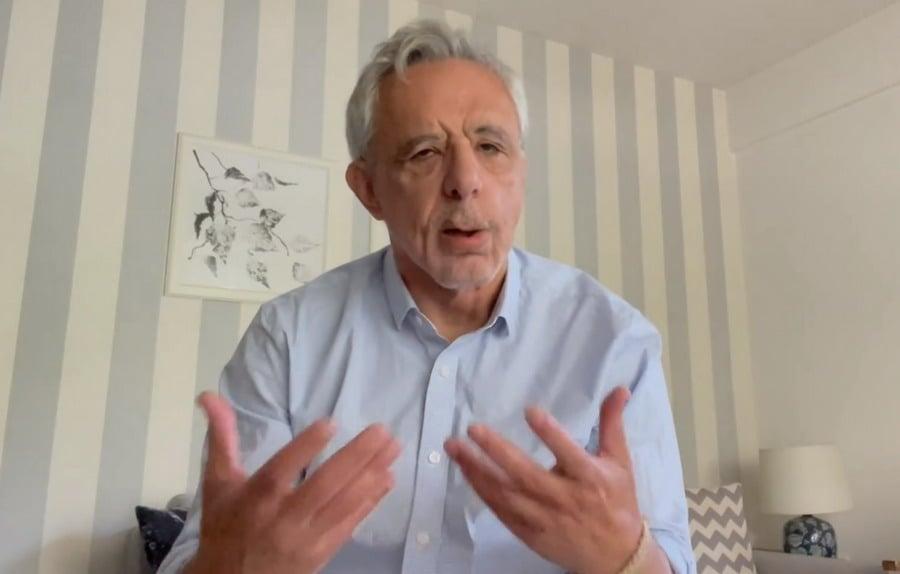Armenian hopes rest on West again The sad mime's gestures
Guess who has reappeared on the Armenian media landscape? None other than former Foreign Minister of Armenia, Vartan Oskanian. In a video message posted on Facebook, the ever-dedicated Armenian patriot remarked that there is "a very positive attitude surrounding the issue of the collective return of Karabakh Armenians under international guarantees."
It's not hard to see that this time, the veteran Armenian diplomat has resurfaced in response to a statement by Toivo Klaar, the former EU Special Representative for the South Caucasus and now the EU Ambassador to Uzbekistan. Recently, Klaar suggested that Baku is obliged (and allegedly even acknowledges this obligation) to ensure the return of Armenians to Karabakh—a matter he insists should not be equated with the return of Azerbaijanis expelled from Western Azerbaijan.
Seizing on what he views as an endorsement from a prominent European official, Oskanian grew noticeably excited and decided to record a video message to his fellow citizens, in which he directly cited Klaar. According to Oskanian, if Armenia places the collective return of Armenians to Karabakh on the negotiation agenda, it will garner international support. "I would like to refer to Klaar’s words that Azerbaijan has an obligation on this matter, and that it should be on the agenda. Klaar also raises and answers a question that I often touch upon. He says that in exchange for the return of Karabakh Armenians, Azerbaijan might bring up the issue of relocating Azerbaijanis to Armenia, but these issues are in no way related to each other, they are on two entirely different planes," Oskanian stated.
The former minister went on to amplify Klaar's words, as well as his own, by noting that "there are clear positions held by very important people, which I have witnessed firsthand, where it is stated: if Azerbaijan thinks it has resolved this issue through military means, it is gravely mistaken. The Karabakh issue will not be resolved until international guarantees are provided, with the restoration of people's rights, and the question of returning to their homes is still unresolved."
Subtly woven between the lines is a hint of self-congratulation, as if suggesting that his invisible yet relentless efforts have prompted these "very important people" to speak out in defense of the "violated rights of the Armenian population of Karabakh." But that’s a digression. The reality is that this fabricated issue will undoubtedly be raised from time to time by various figures in the West. However, Oskanian overlooks the core issue: the real question is not who says what and when, but who has the leverage to harm Azerbaijan. And on this front, the former Foreign Minister is left without an answer.

Let's recall how various figures last summer condemned Azerbaijan over the alleged blockade of Armenians in Karabakh. Did that in any way hinder Azerbaijan from fully restoring its sovereignty? Did the US or the EU impose sanctions on Azerbaijan, or perhaps reconsider their energy cooperation with the nation?
Baku's position is crystal clear, as President Ilham Aliyev has repeatedly stated: the Armenians of Karabakh, who voluntarily left Azerbaijan in September 2023, may return if they accept Azerbaijani citizenship. Moreover, their return is contingent upon the resettlement of the 250,000 Azerbaijanis expelled from their ancestral lands in Western Azerbaijan—what is now modern-day Armenia—at the end of the 1980s. Any other speculations on this matter are nothing more than empty rhetoric.
This could have been the conclusion of the article, but we must spare a few more words for the subject of this piece—the sad mime of the Armenian political stage. At the end of his video message, he blamed the current Armenian authorities for "what happened to the Karabakh Armenians" and urged them not to let the government forget "about this issue."
Oskanian may not be driven solely by a desire to revive the Karabakh clan. It's possible that his recent activity is primarily fueled by a wounded professional pride. He feels compelled to appear from time to time and convince the public that "he would never have allowed such disgrace." It’s highly likely that his so-called life-saving admonitions and warnings will continue to reach the Armenian people, like the distant light of a fading star, for a long time to come.








